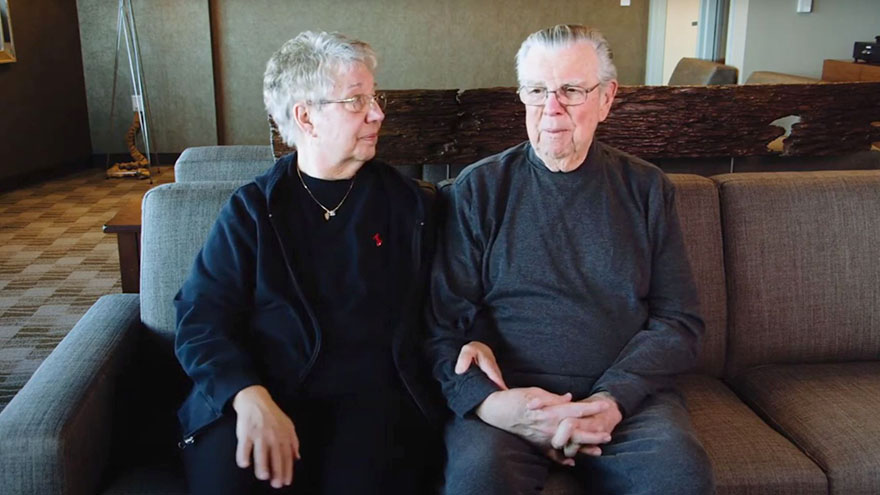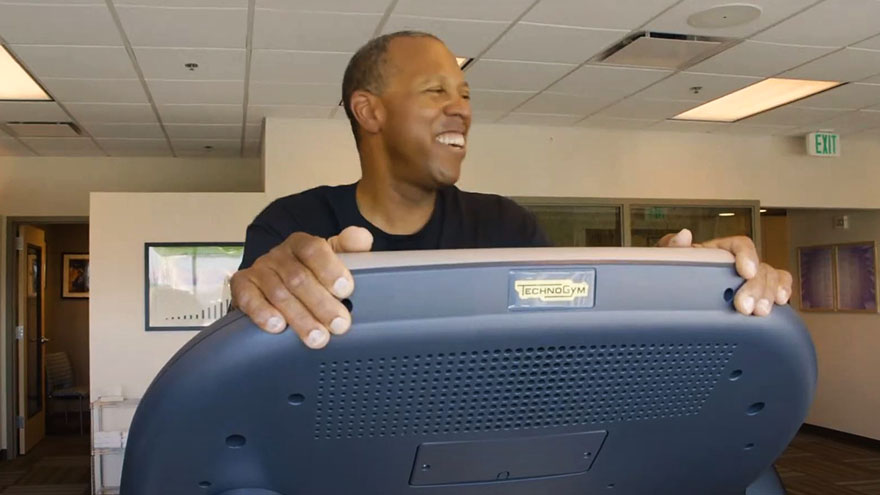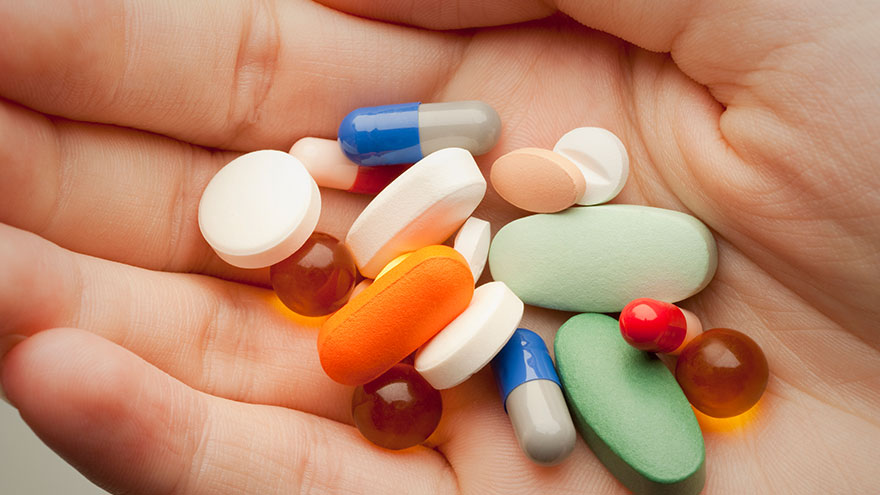Search
-
-
11Jun
Renown Institute for Heart & Vascular Health proudly offers the free Cardiovascular Support Group. Please join us if you or anyone you know has been diagnosed with cardiovascular issues. Meet and get to know the Cardiovascular Quality Team from the Renown Institute for Heart & Vascular Health on the second Tuesday of every month from 2-3 p.m. This group is open to all cardiovascular patients and their families. Learn about managing and living with cardiovascular issues in a supportive group environment. Virtual attendees will receive instructions on how to join the meeting the day before the event. Complimentary refreshments and informative materials will be provided!
Read More About Cardiovascular Support Group
-
-
-
10Dec
Renown Institute for Heart & Vascular Health proudly offers the free Cardiovascular Support Group. Please join us if you or anyone you know has been diagnosed with cardiovascular issues. Meet and get to know the Cardiovascular Quality Team from the Renown Institute for Heart & Vascular Health on the second Tuesday of every month from 2-3 p.m. This group is open to all cardiovascular patients and their families. Learn about managing and living with cardiovascular issues in a supportive group environment. Virtual attendees will receive instructions on how to join the meeting the day before the event. Complimentary refreshments and informative materials will be provided!
Read More About Cardiovascular Support Group
-
-
-
13Aug
Renown Institute for Heart & Vascular Health proudly offers the free Cardiovascular Support Group. Please join us if you or anyone you know has been diagnosed with cardiovascular issues. Meet and get to know the Cardiovascular Quality Team from the Renown Institute for Heart & Vascular Health on the second Tuesday of every month from 2-3 p.m. This group is open to all cardiovascular patients and their families. Learn about managing and living with cardiovascular issues in a supportive group environment. Virtual attendees will receive instructions on how to join the meeting the day before the event. Complimentary refreshments and informative materials will be provided!
Read More About Cardiovascular Support Group
-
-
-
10Sep
Renown Institute for Heart & Vascular Health proudly offers the free Cardiovascular Support Group. Please join us if you or anyone you know has been diagnosed with cardiovascular issues. Meet and get to know the Cardiovascular Quality Team from the Renown Institute for Heart & Vascular Health on the second Tuesday of every month from 2-3 p.m. This group is open to all cardiovascular patients and their families. Learn about managing and living with cardiovascular issues in a supportive group environment. Virtual attendees will receive instructions on how to join the meeting the day before the event. Complimentary refreshments and informative materials will be provided!
Read More About Cardiovascular Support Group
-
-
-
9Jul
Renown Institute for Heart & Vascular Health proudly offers the free Cardiovascular Support Group. Please join us if you or anyone you know has been diagnosed with cardiovascular issues. Meet and get to know the Cardiovascular Quality Team from the Renown Institute for Heart & Vascular Health on the second Tuesday of every month from 2-3 p.m. This group is open to all cardiovascular patients and their families. Learn about managing and living with cardiovascular issues in a supportive group environment. Virtual attendees will receive instructions on how to join the meeting the day before the event. Complimentary refreshments and informative materials will be provided!
Read More About Cardiovascular Support Group
-
-
-
12Nov
Renown Institute for Heart & Vascular Health proudly offers the free Cardiovascular Support Group. Please join us if you or anyone you know has been diagnosed with cardiovascular issues. Meet and get to know the Cardiovascular Quality Team from the Renown Institute for Heart & Vascular Health on the second Tuesday of every month from 2-3 p.m. This group is open to all cardiovascular patients and their families. Learn about managing and living with cardiovascular issues in a supportive group environment. Virtual attendees will receive instructions on how to join the meeting the day before the event. Complimentary refreshments and informative materials will be provided!
Read More About Cardiovascular Support Group
-
-
-
8Oct
Renown Institute for Heart & Vascular Health proudly offers the free Cardiovascular Support Group. Please join us if you or anyone you know has been diagnosed with cardiovascular issues. Meet and get to know the Cardiovascular Quality Team from the Renown Institute for Heart & Vascular Health on the second Tuesday of every month from 2-3 p.m. This group is open to all cardiovascular patients and their families. Learn about managing and living with cardiovascular issues in a supportive group environment. Virtual attendees will receive instructions on how to join the meeting the day before the event. Complimentary refreshments and informative materials will be provided!
Read More About Cardiovascular Support Group
-
-
How Dorismae Reclaimed Her Life and Walking Shoes with TAVR
When lifelong trekker and adventurer Dorismae Weber learned her aortic valve was shutting down, she was afraid she was losing something she loved most: her daily walks. But following a trans catheter aortic valve implantation, Weber reclaimed her walking shoes — and her life. This is her story. An avid walker and traveler, Dorismae Weber’s life changed dramatically when she was exploring Mongolia and began having trouble breathing. Weber, 84, learned her aortic valve was shutting down. “It’s scary when you lose what you’ve always done,” Weber says. “I’ve walked all my life, and it’s always been the place I’ve gone to for comfort, for solving problems, for just enjoying. But all of a sudden, I couldn’t do this anymore.” Weber was not a candidate for traditional open heart surgery because she had heart surgery in the past. Then Weber learned about about trans catheter aortic valve implantation, also known as TAVR. She went to see Renown cardiologist Jake Ichino, MD, who put her through a battery of tests before performing the procedure. “Unlike the standard traditional open heart surgery, TAVR is a less invasive approach,” Dr. Ichino says. “We traditionally go up the artery of the leg with a catheter tube device and then we implant a valve without opening the chest.” After the TAVR procedure, Weber was once again able to complete her daily five-mile hikes. “When I woke up, all I can tell you is that I looked around and I thought, ‘I have a whole new life ahead of me — when I was told there was very little left,'” Weber says. She has also planned a trek just below the arctic circle with the environmental group Earthwatch. “I’m here because I had that procedure,” Weber says. “I’m here because they offered that procedure. And I’m very grateful for it, because I wouldn’t be here without it.” To learn more about TAVR, visit Renown’s Institute for Heart and Vascular Health.
Read More About How Dorismae Reclaimed Her Life and Walking Shoes with TAVR
-
The Not-So-Fab-Five: Foods That Increase Stroke and Heart Disease Risk
Did you know that 80 percent of all strokes are preventable? Learn which foods should be eaten in moderation to reduce your family's risk of stroke. Stroke is the fifth leading cause of death in the nation and a major cause for disability, killing 130,000 people each year. But did you know that 80 percent of all strokes are preventable, according to the American Stroke Association? Several stroke risk factors -- high blood pressure, smoking, diabetes, physical activity level, obesity, high cholesterol and heart and artery disease -- can be controlled, treated and improved, right down to the foods we choose to consume each day. Diets high in sodium can increase blood pressure, putting you at greater risk for stroke. A high-calorie diet can lead to obesity -- another risk factor. And foods high in saturated fats, trans fat and cholesterol will raise your blood cholesterol levels causing blood clots, which -- you guessed it -- can lead to a stroke. The “not-so-fab” five foods listed below play a large role in damaging your body and causing vascular disease, stroke and heart disease and should be avoided on a regular basis. However: Moderation is the key to life, in my opinion. Sure, everyone is going to have a soda here and there or a steak off the grill, but keep it off the main menu. 1. Packaged and Fried Food Have you noticed foods like hot dog buns and bottled salad dressings rarely go bad? Ever asked yourself why? This is due to the use of hydrogenated oils, which are trans fats. Hydrogenated oils stay solid at room temperature and do not require refrigeration. Convenient? Yes. Healthy? No. Unfortunately, many frozen foods and meals also fall into this category, except for frozen fruits and veggies. So here’s the lowdown on trans fats: They’re considered by many experts as the worst type of fat you can consume, raising your LDL (“bad”) cholesterol and lowering your HDL (“good”) cholesterol. While some meat and dairy products contain small amounts of naturally occurring trans fat, most dietary sources are formed through an industrial process adding hydrogen to vegetable oil, causing the oil to solidify at room temperature. The FDA is in the process of restricting or possibly banning trans-fats from food in the U.S. A study published in JAMA Cardiology compared data from counties with and without trans-fat restrictions and the findings were substantial: There was a 6 percent decline in hospitalizations for heart attack and stroke in counties with trans-fat restrictions. Bottom line: Ideally no processed food should pass your lips, but realistically, aim for less than 2 grams of trans fat per day. Skip the store-bought treats at the office and fries at lunch. Also avoid crackers, regardless of what you are dipping them in. Choose to eat fruits to satisfy your sweet cravings and veggies and hummus to satisfy the savory. 2. Lunch meat Processed meats, including bacon, smoked meats and hot dogs, are all on the DNE (Do Not Eat) list, unless you want to play with fire. Processed meats are a no-go if you want to keep your arteries clear of plaque buildup. So what is the alternative to your salami sandwich? Try a healthy alternative like a tuna sandwich with avocado (a great alternative to mayo) or a veggie sandwich. 3. Diet soft drinks First of all, when a drink is sweeter than a candy bar but it contains zero sugar and zero calories, buyer beware. Many consumers think because a soda is labeled “diet” it’s a better choice, but studies have linked diet soft drink consumption with an increased risk of stroke and vascular disease. In a nine-year study of more than 2,500 people, those who drank diet soda daily were 48 percent more likely to have a heart attack or stroke or die from those events, compared with those who rarely or never drank soda. What else are you supposed to drink? If you must drink soda, break the everyday habit and drink it on special occasions; otherwise water rules. And if you don’t like water, try flavoring your water with fruit slices. 4. Good-old red meat So is there ANY good meat out there you ask? The answer is yes, but it’s not red. In the journal Stroke, an article showed women who consumed large servings of red meat regularly had a 42 percent higher incidence of stroke. Red meat is high in saturated fat, which clogs arteries with plaque. The alternative to red meat is a heart-healthy protein like poultry or fish, or even non-animal products like beans, nuts and tofu. 5. Canned foods Steer clear of factory processed soups, beans and sauces. Canned items all have incredible amounts of sodium or MSG or baking soda/powder to maintain their freshness and shelf life. One study showed if you consume more than 4,000 mg of salt per day, you more than double the risk of stroke compared to diets with less than 2,000 mg. Another tip: When possible, plan and make meals from scratch. Making the wrong meal or snack choices is one of the biggest contributing risk factors for stroke and heart disease. Most people know what good food choices are, but they don’t realize the serious impact the bad choices have on overall health. Learn what is most beneficial to your body to consume. It will be a life changer – literally.
Read More About The Not-So-Fab-Five: Foods That Increase Stroke and Heart Disease Risk
-
Carl and Janis Team Approach to Renowns Healthy Heart Program
Meet a couple that's all heart. After each had a heart attack one year apart, they committed to Renown's new Healthy Heart Program and support each other along the road to heart health. Almost a year to the day that Janis VanHorn had a heart attack, her partner, Carl Edson, had one too. "That kind of doubled the dose of making sure that we were doing everything that we could to continue with our life," VanHorn says. "It's a very life-altering thing.” And after Edson's quadruple bypass open heart surgery, he was grateful for the simple act of getting into the car with the woman he loves. "I was so relieved," he says. "I didn't realize how precious life was until that moment." The couple see the same cardiologist, Richard Seher, M.D., FACC, FSCAI, who recommended they participate in Renown's new Healthy Heart Program, a 12-week, 36-visit intensive cardiac rehabilitation curriculum that includes monitored exercising and cooking classes. Now they're both familiar faces at the program, which is located at the Renown South Meadows Medical Center. After several weeks, Edson says he has lost 10 pounds and VanHorton has lost inches and feels more toned. Tackling the program together has brought the couple closer and given them the opportunity to fuel one another's health goals and longevity. "I would be lost without this man," VanHorn says," and anything I can do to help him live longer, I'm going to do that." Edson adds, "She is to me my whole life, and I mean that sincerely. There's no one else I can turn to that has helped me in my life as she has, and I'm just trying to return the favor in a big-time way. She is my everything."
Read More About Carl and Janis Team Approach to Renowns Healthy Heart Program
-
Going the Distance to Get Heart Healthy
After having a heart attack, a Mammoth resident travels to Reno to complete rehab. He’s already lost 15 pounds and gained a healthier outlook on life. Eric Smith travels from his home in Mammoth Lakes, Calif., to Reno twice a week to participate in Renown Health’s Healthy Heart Program. “Living in Mammoth, it’s a three hour drive for me up here. Well, it’s my life or it’s a drive,” says Healthy Heart Program participant Eric Smith. The Mammoth Lakes, Calif., resident travels to Reno twice a week to participate in the 72-session program. which includes heart-healthy classes, exercise sessions and cooking demonstrations. “The cardiac rehab program here is excellent,” Smith says. “It is the only program that I am aware of that combines nutrition and exercise together. What’s the point of exercising to get your heart strong if you are still eating poorly and not educating yourself on that?” Smith’s heart issues began when he was 46-years-old. He received an angioplasty, which is a stent to hold a coronary artery open. Two years later, Smith had a heart attack and was flown to Renown Regional Medical Center for emergency bypass surgery on four arteries to allow blood to flow to his heart more freely. An avid skier, ski racing coach and tile setter, Smith admits that it is sometimes difficult to eat right when you’re on the go in a tourist town. Since starting the cardiac rehab program, Smith says he is feeling more optimistic on making lasting lifestyle changes after meeting other people who are going through the same challenges, like food cravings and trying to get stronger. “The big thing is getting educated on food,” says Smith, who has swapped out heavy breakfasts for whole grains and fruit, and steak dinners for baked fish. In just a few months of starting the program, Smith lost 15 pounds. He looks forward to passing along what he’s learned to his friends. “Everybody benefits from this program, especially if you have experienced a heart attack,” Smith says. “But if you don’t have those issues, you can still get the benefits from eating healthier.”
-
Foods to Avoid When Taking Heart Medications
Did you know certain medications can interact with everyday food and drink? We asked Pharmacy Manager Adam Porath how to take these important medications safely. One in five Americans between the ages of 40 and 75 are currently taking a statin drug to reduce their cholesterol level or to prevent atherosclerosis (hardening of the arteries). Many others also take anticoagulants (blood thinners) to prevent blood clots from forming, which can increase the risk of stroke. Adam Porath, pharmacy manager with the Renown Institute for Heart and Vascular Health’s Anticoagulation Program, explains how to safely take these medications. What is a statin? A statin is a drug that can lower cholesterol by helping your body absorb cholesterol or by blocking a substance your body needs to make it. The American Heart Association cites a global study reporting the benefit of statins to help reduce heart attacks and strokes. Common statins include atorvastatin (Lipitor), pravastatin (Pravachol), rosuvastatin (Crestor) and simvastatin (Zocor). Which foods or drinks should be avoided while taking statin drugs? Grapefruit juice is the only food or drink that has a direct interaction with statins. Statins do not directly interact with any food but people taking statins should moderate their intake of saturated fats to help lower their LDL cholesterol and overall risk of cardiovascular disease. What is a blood thinning drug? Blood thinning drugs, such as warfarin, rivaroxaban (Xarelto), apixiban (Eliquis), dabigatran (Pradaxa) and edoxaban (Savaysa), are used to prevent stroke. Which foods or drugs should be avoided while taking blood thinning drugs? If taking warfarin, alcohol and cranberries (including juice) should be avoided. Patients taking warfarin should be aware of foods that contain Vitamin K (green leafy vegetables) and try to maintain a consistent diet of these foods. Warfarin interacts with many over the counter and prescription medications. Patients should consult a pharmacist when starting, stopping, or changing doses of any medication when taking warfarin. Also, patients taking any blood thinning medication should avoid over-the-counter pain relievers (i.e. aspirin, ibuprofen, etc.) How do I know whether to take my medication with food or not? Consulting with a pharmacist is the best resource to determine if a medication should be taken with or without food. In general, all statins and blood thinners can be taken with or without food. The only exception is Xarelto (rivaroxaban), which should be taken with the largest meal of the day If you are a Renown patient you can also review your prescriptions online, request a refill or ask a question via MyChart. With MyChart, you can access all your healthcare information securely 24/7.
Read More About Foods to Avoid When Taking Heart Medications




